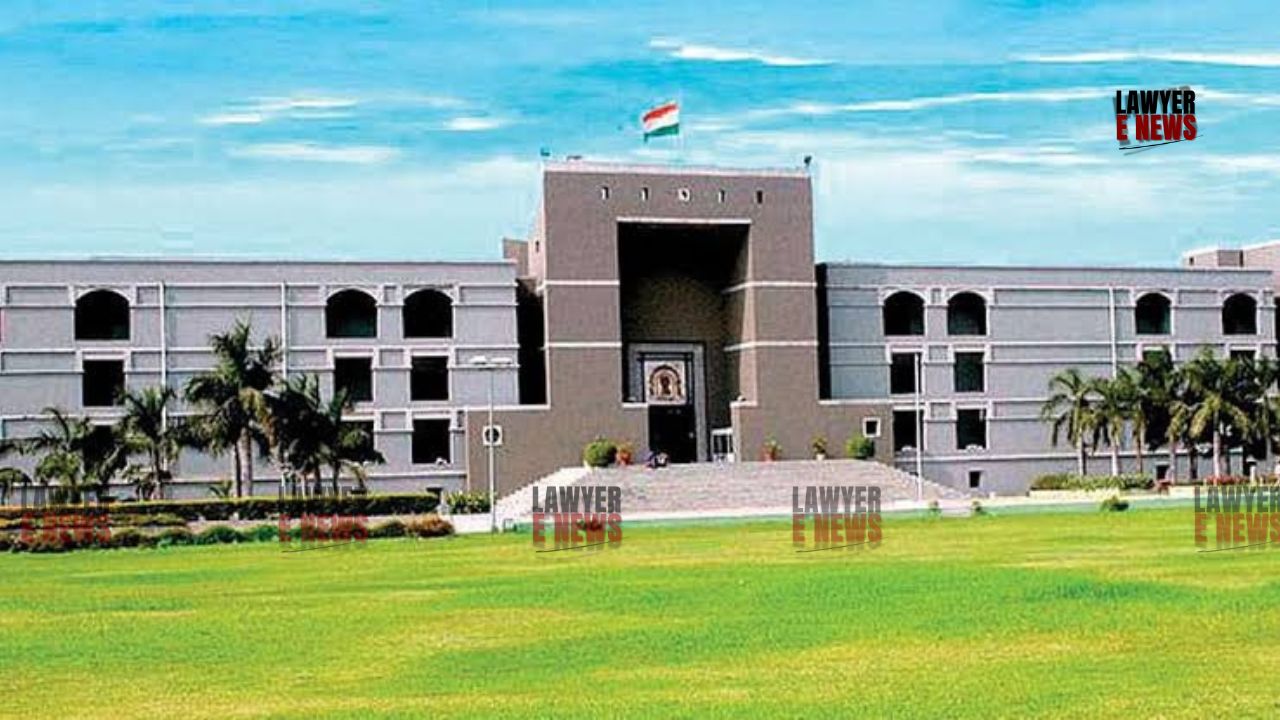-
by Admin
15 February 2026 5:35 AM



Gujarat High Court delivered a significant judgment, setting aside an arbitral award concerning the sale of agricultural land. The court found the award vitiated by patent illegality due to the arbitrator’s failure to disclose a close relationship with a key director of the claimant company. Additionally, the court held that the claim for specific performance was barred by limitation under Article 54 of the Limitation Act, 1963.
The dispute centered around agreements to sell agricultural land in Gujarat, subject to obtaining non-agricultural use (NA) permissions. The claimant, a non-agriculturist company, sought specific performance of the agreements from the respondents, who were required to convert the land for non-agricultural use.
The respondents revoked a Power of Attorney granted to the claimant in 2012, prompting the claimant to initiate arbitration under the Arbitration and Conciliation Act, 1996. The arbitrator ruled in favor of the claimant, ordering the respondents to seek requisite permissions and execute the sale deed. However, the respondents challenged the award under Section 34 of the Arbitration Act, raising two primary issues: (1) the claims were time-barred and (2) the arbitrator had failed to disclose a conflict of interest.
The agreements to sell, executed in 2007-2008, provided the claimant with six months to obtain the required permissions for non-agricultural conversion. However, the claimant did not take any steps until 2012, when the Power of Attorney was revoked.
The respondents argued that the limitation period of three years began when the claimant failed to act within the stipulated time.
The court agreed, holding that the claims were time-barred, as the claimant’s cause of action arose when it failed to seek NA permissions within the agreed time.
"The proceedings were initiated by the claimant only in 2012, and no steps had been taken in the meantime. All the arbitral references were time-barred."
During the arbitration, it was revealed that the arbitrator had a long-standing personal and professional relationship with Mr. Mahendra G. Lodha, a key director holding a 51% stake in the claimant company.
The arbitrator and Mr. Lodha had co-founded a public trust and maintained social ties, including attending family events during the arbitration. The arbitrator did not disclose this relationship at the time of his appointment or during the proceedings, as required under Section 12 of the Arbitration Act.
The court found that this failure to disclose created justifiable doubts about the arbitrator’s impartiality, violating the principles of natural justice.
"It cannot be believed that at the time of appointment of the learned arbitrator, he might not have known that Mr. Lodha had stakes in the claimant company."
The Gujarat High Court ruled that the claimant had failed to pursue its obligations under the agreements for over five years, rendering the claim time-barred under Article 54 of the Limitation Act. The court emphasized that the claimant had been given a Power of Attorney in 2007 to obtain the necessary permissions, yet failed to act until after the revocation in 2012.
The court rejected the arbitrator’s finding that the cause of action arose only when the public notice of revocation was issued in 2012. Instead, the court held that the limitation period began to run from the date the claimant was expected to perform its obligations, not from the date of revocation.
The court scrutinized the arbitrator’s relationship with Mr. Mahendra G. Lodha, a director and significant shareholder in the claimant company. Despite attending family events hosted by Mr. Lodha and co-founding a trust with him, the arbitrator failed to disclose these connections, violating Section 12(1) and (2) of the Arbitration Act. The court noted that this relationship gave rise to justifiable doubts about the arbitrator’s impartiality.
The court held that, under Section 34(2)(b)(ii) of the Arbitration Act, the award conflicted with the public policy of India due to the arbitrator's failure to meet the standards of independence and impartiality.
The Gujarat High Court’s judgment underscores the importance of timeliness in seeking specific performance of contracts and the duty of arbitrators to disclose conflicts of interest. The failure to adhere to these principles resulted in the arbitral award being set aside for both patent illegality and a breach of public policy.
Date of decision: 13/09/2024
Sentinel Properties Pvt. Ltd VS LEGAL HEIR OF DECEASED ATUL DHIRAJLAL AMIN VIRAL ATULBHAI AMIN
